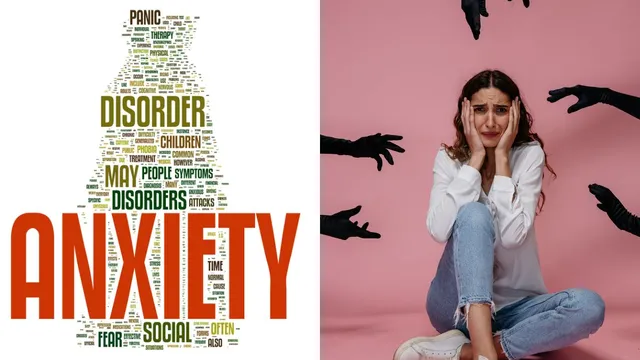- By Bornika Das
- Fri, 10 Oct 2025 05:05 PM (IST)
- Source:JND
Fear and anxiety are often used interchangeably in daily conversations, but in the realm of mental health, they are distinct emotional states with different triggers, timelines and impacts. Fear is typically a response to an immediate, identifiable threat, a natural and protective reaction that prepares the body to either confront or escape danger. Anxiety, on the other hand, stems from the anticipation of a potential threat, often without a clear or present danger. Understanding the difference between these two responses is crucial because misinterpreting them can lead to ineffective coping strategies and unnecessary emotional distress.
While fear can subside once the threatening situation passes, anxiety often lingers, affecting daily functioning, relationships and overall well-being. The emphasis lies in recognising the root cause and duration of the emotional experience. Persistent anxiety may indicate an underlying mental health condition that requires professional attention, while healthy fear can play a vital role in survival. In conversation with The Daily Jagran, Dr. (Miss) Sumit Grover – Psychologist, Life Coach, and Motivational Speaker, shares the key differences between fear and anxiety on World Mental Health Day 2025.
Fear vs Anxiety: Key Differences
Fear is a reflex, a spontaneous reaction to an actual or threatened danger. It is short-lived and, in the moment, like seeing a snake or hearing a burglar. Dr. Sumit Grover states, “Fear triggers the fight-or-flight mechanism of the body, raising concentration, speeding up the heart rate, and priming the body to react.” When the danger is removed, fear vanishes virtually in an instant.
Anxiety, however, is more than fleeting, longer-lasting worry or fear; it is a protracted emotional state. While fear arises in reaction to immediate danger, clinical anxiety is directed toward the future and may even be present in the absence of an actual or impending threat. Dr. Sumit Grover mentions, “Anxiety is representative of worry concerning what may possibly happen in the future, e.g., losing one's job, getting sick, or flunking an exam.” Though usually milder than fear, anxiety is longer-lasting and disrupts normal functioning. Anxiety can be expressed clinically as unremitting restlessness, racing mind, difficulty with concentration, irritability, sleep disturbances, and bodily symptoms like rapid heartbeat, tense muscles, or shortness of breath.

Fear vs Anxiety Differences You Must Know (Image Credits: Canva)
ALSO READ: World Mental Health Day 2025: 50+ Inspiring Quotes To Encourage Healing And Hope
In effect, fear is a response to an actual, present danger, while anxiety is a reaction to possible or perceived threats. Dr. Sumit Grover says, “They both perform valuable protective roles, fear leading to instant action, and anxiety leading to preparation and anticipation. But if either of them becomes excessive or disproportionate, professional help can be helpful.” Fear can be most effectively managed by immediate action, while anxiety is receptive to long-term measures like Cognitive Behavioural Therapy (CBT), mindfulness, counselling, and lifestyle modification.

